“By putting oneself in accord with the Tao – one’s time, one’s world, oneself – one accomplishes the ends of life and is at peace in the sense of being in harmony with all things”. Joseph Campbell (1)
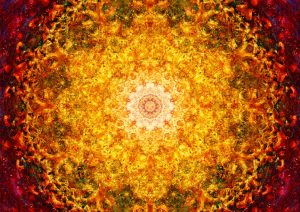
Given the name of this website, some readers might be expecting me to advocate lots of meditation and yoga here, the seeking of enlightenment. While I have nothing against these practices if they are appropriate for the individual in question (discussed in my next article, but please read this one first), I have in mind something different, something perhaps more modest.
There are two questions to consider here. What would a spiritual society look like, and what would be the role of the citizen once it is achieved? Since we are nowhere near achieving a spiritual society, what can we do in the meantime to facilitate the process?
In my worldview, it would be important for each citizen in a spiritual society to understand that:
He or she is on a spiritual journey, a soul, or whatever similar term you prefer, incarnated, or more precisely reincarnated, into a body (2).
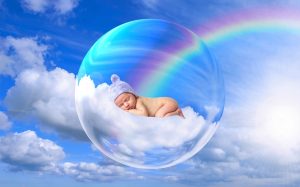 There is a plan for each incarnation (words like destiny and fate might be relevant), which each person would have a duty to understand and try to fulfil. This plan may have something to do with what in Eastern religions is called karma. Each individual life would therefore, or at least should, be guided/ dictated by the Higher Self or soul.
There is a plan for each incarnation (words like destiny and fate might be relevant), which each person would have a duty to understand and try to fulfil. This plan may have something to do with what in Eastern religions is called karma. Each individual life would therefore, or at least should, be guided/ dictated by the Higher Self or soul.
Getting in touch with this plan could be achieved by methods including those outlined in my articles The Spirit of Guidance and Divination: dream interpretation, divination (e.g. Tarot, I Ching), strong intuitions (“orders” as understood by Rosalind Heywood), and synchronistic events. As Sir George Trevelyan says: “In our dramatic and exciting age we are called on to learn how to contact the inner Teacher that we may be guided safely through times of change, and in time become channels for the creative Source” (my italics) (3). The net result of this could be to follow one spiritual tradition, but it could also be something as simple as changing one’s career, doing what one has always secretly wanted to do.
If each citizen follows this course, it should provide a profound sense of meaning in life, and it is only such ideas that can provide this meaning. Atheistic attempts – e.g Sartre, and modern humanism – don’t cut it. True meaning comes from a surrender of the ego to something higher – “not my will, but yours be done”. This approximates to what is called in the East Karma Yoga, the path of action, serving a higher, ultimately divine, principle. Christians might call it serving the Holy Spirit. As the quote from Joseph Campbell above suggests, it means being in harmony with the Tao, the ongoing evolution of the universe.
All citizens would thus be concentrating on their own journey, but if all citizens were doing this, then there would be an implied coming together, everyone participating at an individual level in the spiritual plan for the evolution of the planet and ultimately the cosmos.
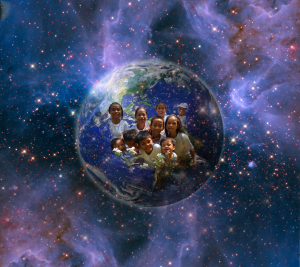
That idea leads me back to the theme of my most recent articles, the Earth as a superorganism, and humanity’s role in it (4). This is still a hypothesis, but if it is a reality, as I suspect it is, then each citizen should also be aiming to participate in the project of transforming the planet into a conscious superorganism (Awakening the Earth, as the title of Peter Russell’s book puts it), since this appears to be the next step in the evolution of Gaia. (The ideas in the above section should in any case be leading in this direction.)
At this point, I would like to introduce the important concept of the holon. This was a term coined by Arthur Koestler, an intellectual giant of the 20th century, in his book The Ghost in the Machine (5). He suggests that all life is hierarchically organised, the holon being something which from one perspective is a separate entity, yet at the same time from a different perspective is part of a greater whole. Obvious examples would be parts of the human body – a heart, liver, kidney, brain are all separate and completely different, yet are all parts of the overall superorganism of the body. Indeed, this is how they gain their purpose. What would be the point of a heart, liver, or kidney existing in isolation?
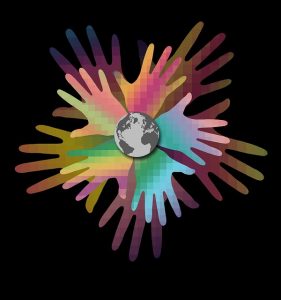
I therefore suggest that each human being is a holon, obviously a separate individual entity, but at present less obviously part of a greater whole – the superorganism of the Earth. There may also be intermediate levels in this hierarchy – family, national superorganisms etc.
Someone who completely fails to understand this is Britain’s current Prime Minister Theresa May, who said at the Conservative Party conference in 2016: “If you believe you’re a citizen of the world, you’re a citizen of nowhere. You don’t understand what the very word ‘citizenship’ means.” This suggests that she is completely locked into a lower level of the holon system, the idea of the national superorganism, yet completely fails to see the bigger picture of the Earth as superorganism. Someone who did have a much better appreciation of the holon concept was one Jem Eskenazi, who wrote in a letter to the Financial Times in response to Theresa May’s speech: “I do understand very well what citizenship is, Mrs May. It is to have a balanced view of the interests of your family, your neighbourhood, your town, your country and your world”, thus five levels of the holon idea.
A citizen in a spiritual society would try to participate at each of these levels. Former prime minister David Cameron was presumably thinking along these lines at a national level when he announced the idea of the “Big Society”, which came out as a big policy statement, but disappeared fairly quickly from public view, without any explanation, and without any clear definition of what he meant in the first place.
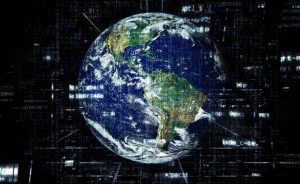
It appears that the physical foundations of the superorganism are being built – the internet and social media, which are enabling global interconnectedness. Also, the idea of something apparently equivalent to the superorganism appears in various guises, but I would call these false attempts. At the very least, however, this shows that the idea is in the air. Examples are:
the drive towards economic globalisation, a world market, although it is not clear, to me at least, whether this is a positive move towards the superorganism – it might merely be a plan to benefit the Capitalist elite.
socialism, which claims to be an internationalist movement. There is a slogan: workers of the world unite. The problem with this is that it opposes workers against bosses, therefore retains the idea of a conflict. The bosses are also part of the system. Socialism does nothing to heal these differences.
the European Union, which is apparently going in this direction, in that it is trying to create a European superorganism, which might be a step on the road to a global one. Brexit (the British decision to leave the European Union) in this context appears to be regressive, a refusal to accept the move towards the superorganism. (It would take too long for me to explain here why I think this is a false attempt; that will be the subject of a later article.) .
I’ll turn now to the second question, what can we do to facilitate the arrival of a spiritual society? What is missing currently is a widespread experience of a psychic coming together. At the end of my previous article I advocated the introduction of ESP experiments into the education system, and for a state-controlled programme of psychedelic drug taking, and I believe that these would be genuinely helpful. Here are some further suggestions.
Peter Russell says that: “Spiritual teachers, mystics and visionaries have repeatedly affirmed, whatever their culture or time, that we are more than just biological organisms bounded by the skin. We are also unbounded, part of a greater wholeness, united with the rest of the Universe” (6). One simple thing we could do to move towards the Earth as superorganism, therefore, would be to immerse ourselves in such spiritual teachings, and visualise and imagine ourselves as one cell within the superorganism, start to think of ourselves as citizens of the planet.
Secondly, we could care deeply about the planet, and try to see things from its (her?) point of view. We could rediscover, in the words of Mark Muesse in my previous article, the ancient understanding of religion as “a ritual means for human beings to collaborate with the divine powers to assist in keeping the world in good working order”. This may be exactly what is needed to save the world in its current crisis, since humanity, or at least its politicians, seems incapable of sorting anything out in a meaningful way.
A specific example would be to readopt the ideas of the Muisca tribe, also from my previous article. I’ll repeat two of the quotes:
“The Muisca believed that humans are an integral part of the environment, and they all live within an ecology of different relationships”.
“In this society value was tied up with ensuring peaceful equilibrium in the landscape and in the cosmos”.
In general terms, there is much we can learn from a study of tribes, their understanding, and their way of life.
I have referred to Peter Russell frequently in recent articles, where his book The Awakening Earth has been a major inspiration. Here are some of his ideas, all of which can be found in chapter 12, Towards the High Synergy Society. He says that:
“It will be humanity as a whole which will make the transition”, that we will see changes “in the behaviour of society rather than the individual”. “It is the ‘laws’ of economics, politics, and sociology which would be radically changed – laws which are dependent upon the collective behaviour of many people”.
“The goals of the individual are in harmony with the needs of the system as a whole. As a result there is minimal conflict between the elements of the system, and between these elements and the system as a whole”. He sees evidence for this in various tribes.
there would be “a widespread shift from a derived sense of self to the universal Self. As a result we would begin to feel for the rest of the world in much the same way that we feel for our own bodies”.
there would be “a society where spiritual values were a universally accepted part of life. Self-development and inner growth would be recognized as the proper end of all human striving, and the basis of our continued evolution”. He thinks that we will need to work less, which would allow “a growing use of time for inner development”.
There would be major changes in values, consumption would decrease, and people would spontaneously lead simpler lifestyles.
He expects an increase in synchronistic coincidences, evidence that “the environment is acting in a very supportive manner”. These should no longer be “marvelled at, but accepted as the natural order”, since they may be “the manifestation at the level of the individual of a higher organising principle at the collective level – the as yet rudimentary social super-organism”. Along similar lines, he also expects an increase in paranormal phenomena, ESP and the miraculous.
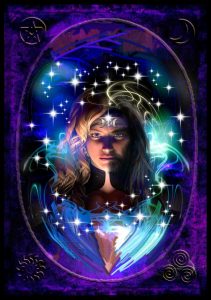
Interestingly, I had almost finished writing this article when I came across, perhaps synchronistically, the work of Serena Roney-Dougal who, on the basis of her book (see bibliography), has been thinking along similar lines to me for many years. Her primary focus is research into parapsychology and consciousness. However, she has elaborated this into a worldview and a programme for action, in which ESP plays a prominent role. Here are some select quotes with which I wholeheartedly agree, taken from chapter 8, The Emerging Relationship Between Science and Mysticism:
She looks forward to “an era in which the whole of society accepts psychic phenomena as part and parcel of life; in which the spiritual regains its place alongside the material”, and a revival of “the animistic, pagan conception of spirit”.
“This emerging philosophy of a magically-oriented society, a society in which the psychic is part and parcel of everyday life, sees the Universe and all life as an interconnected whole, every action and every thought affecting every part of the Universe. This philosophy sees the spirit in every aspect of life”.
“..all the technology is used, but the materialistic philosophy and value systems of the society that created the technology are firmly rejected. Everyone is highly spiritual in a non-religious sense, that is, there is a recognition and a respect for the spiritual aspect of life, but there is as yet no clear form, each individual finding their own way through the plethora of spiritual teachings. At present people seem to be trying out various old systems, such as Buddhism, Paganism, Hinduism, Sufism, the Celtic Revival and blending them together into a mystical framework very akin to the Perennial Philosophy”.
“they are finding the Divinity within their own selves and are becoming self-responsible”.
“…our species as going through an evolutionary shift that is greater than each of us individually – a shift inspired and in some way generated by Mother Nature (Planet Earth, or Gaia, inspired by James Lovelock’s ideas)”.
Instead of going in this direction, which is what the planet desperately needs, Western societies seem to be going in the exact opposite direction – secularism, humanism, the rise of New Atheism, separation of church and state, decline in religious belief. It should therefore be the duty of each citizen to educate themselves, read widely and broadly, learn to think critically, and above all be dedicated to a constant search for truth in all matters, whether that is religion and spirituality, science, history, or politics. Especially important is the battle against scientific materialism inspired by the so-called “Enlightenment”, what Phillip and Paul Collins call The Ascendancy of the Scientific Dictatorship (7), and which Serena Roney-Dougal describes as “the whole power base… which is at present the ruling dogma’ (p249).
Fortunately, there are already moves in this direction. She also says that “the materialistic philosophy is actually confined primarily to the academic establishment and to city dwellers” (p245). “It seems as if the establishment view rejecting the existence of magic is totally out-of-synch with a large proportion of contemporary society which is, at present, enthusiastically espousing all matters psychic and spiritual…” (p239).
“Certain aspects of the ‘Hippy’, ‘Green’, ‘NewAge’ or ‘Aquarian’ culture, which has grown up within our technologically sophisticated world, are probably the best indicators we have of a future psi-oriented society. The dissidents of one generation are the establishment of the next” (p240). Let us make sure this happens, through whatever means are available: protests, new movements, challenging on every occasion the false ideas of the academic establishment.
Dangerous tendencies, which should be resisted, are currently emerging: lack of free speech in universities, the right to “Safe Spaces”, and the so-called snowflake generation. Where will all this lead to? It leads me to wonder whether we have a generation that has been brainwashed by an education system steeped in the ideas of the Establishment.
I’ll leave you with the words of the first founding principle of the Theosophical Society, a spiritual organisation with a very bold forward-thinking statement for its time (1875): “the formation of a universal human brotherhood without distinction of race, creed, sex, caste or colour”. Since this was thinking from a spiritual perspective, this was presumably a firm movement towards the human superorganism.

In an attempt to keep the main thrust of this article as short and simple as possible, I have avoided the more complex, metaphysical issues. For those readers interested in such matters, I have placed them in a separate article, Reflections on Eastern and Western Spirituality, where I discuss Hindu and Buddhist approaches, and the Star of David as a symbol for the human in a spiritual society.
Bibliography:
Roney-Dougal, Serena: Where Science and Magic Meet, Green Magic, 2010, especially chapter 8
Russell, Peter: The Awakening Earth, Routledge & Kegan Paul, 1982
Footnotes:
(1) Myths to Live By, Souvenir Press, 1973, p191-192
(2) It is important that all adults understand this. It might be more problematic for children, who need to establish a separate, confident, identity. Careful thought would therefore be needed, to decide when to introduce such an idea into the education system.
(3) lecture, Gateway to the Infinite, transcribed in The Spirit of Science, editor David Lorimer, Floris Books, 1998, p307
(4) If background information is required, click here and here. For scientific background click here.
(5) Hutchinson & Co Ltd., 1967, p46ff
(6) Russell, p115
(7) iUniverse, Inc., 2004